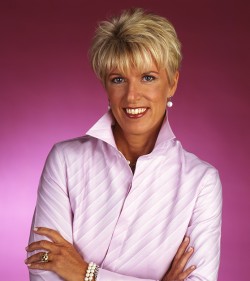 Robyn Waters has done it all—and she’s not done yet! That’s why this month she’s off to Spain and Morocco. But not until she’s made a speech at a major New York design show. Taken some “test drives” to explore where she might want to live next. And enjoyed shifting more of her time and energy into the “give-back” mode.
Robyn Waters has done it all—and she’s not done yet! That’s why this month she’s off to Spain and Morocco. But not until she’s made a speech at a major New York design show. Taken some “test drives” to explore where she might want to live next. And enjoyed shifting more of her time and energy into the “give-back” mode.
Indeed, when it comes to energy—and generosity—Robyn is rich. First, she gave a powerful, 80-minute presentation to my Advertising class at St. Paul’s College of Visual Arts. Then, we met over lunch to talk life and leisure. And finally, she promptly penned these wonderful insights to my Sabbatical questions.
We are so grateful! In fact, countless people are—since Robyn’s career in trend and design has filled the world with tasteful goods, and her appearances and books have moved and educated countless professionals.
It would take a book, frankly, to properly introduce Robyn. But here’s just a snapshot…
- Her 30+ year career includes a long stint as VP of Trend, Design and Product Development at Target.
- During that time, Target became a major fashion and home-goods destination—introducing products from many revered designers.
- As blog star Seth Godin states it, she “revolutionized what Target sells and helped them trounce K-Mart.”
- She’s written two successful books, “The TrendMaster’s Guide,” and “The Hummer and the Mini.”
- Today, she makes appearances and runs a consultancy, RWTrend, while admittedly also relishing some downtime, giving back, and sneaking away on Sabbaticals.
So it’s no wonder Seth Godin featured Robyn in his uber-viral manifesto, “What Matters Now.” As you will see, that’s a question Robyn is ruminating, with inspiring and thoughtful results.
As the original TrendMaster, you stated in your 2002 book, “The Hummer and the Mini,” that sabbaticals may be a growing trend; has that trend grown—or how do you view the state of Sabbaticals today?
The sabbatical trend has perhaps grown in a back-handed (and mostly unhappy) way, as the result of forced lay-offs in the workplace. I would seriously doubt that there are many companies offering or encouraging sabbaticals to their employees, especially in this economic crisis. I’m sure there are some exceptions, but they are probably rare. Given that scenario, one could always choose to make lemons out of lemonade. If you’ve been laid off and aren’t sure of your next step, it may be a good time to create your own version of a sabbatical—either physical or ‘mental.’
Physical might be that trip you’ve always wanted to take that you never had time for, provided of course that your financial situation allows for that. (I’ve been a saver all my life….you never know what opportunities may present themselves in inopportune times.)
You can also take a sabbatical and go inward, and take what I call a ‘mental’ sabbatical. You don’t even have to pack a suitcase. There are a lot of local places (a yoga studio, meditation center, nature preserve, library, life coaching centers) that you can take advantage of with the time you find on your hands.
Our world moves so fast—it’s important to take time occasionally to slow down. I am a student of paradox and one of the ultimate ironies I’ve discovered is that we don’t get our energy from going faster, multi-tasking, and doing MORE. Rather, we find our energy in slowing down, taking time to think and to breathe.
It’s also important to occasionally take time off to ‘get healthy.’ Eat better. Work out. Sleep more. Get fit. Lose weight. Mostly to FEEL better, but also to LOOK better. It’s a great confidence builder, but it also sets you on a healthier course for the rest of your life. It gives you back a sense of being in control of your own destiny. Most professionals I know put ENORMOUS effort and energy into their jobs—but nothing close to equal measure of effort into their non-work lives and personal relationships. I think that’s a formula for unhappiness.
Here’s another approach that worked for me at a crossroads in my life. I had a great job at the time, but the work environment had gotten very toxic and I had become very unhappy. I couldn’t imagine leaving the corporate world after 28 years, but I knew something would eventually have to change. I borrowed a page from Jim Collins (author of Good to Great) and, (while still gainfully employed), created a “Personal Board of Directors.”
It was composed of 8 people (not all close friends—each member had a specific talent or skill that I admired and wanted to try and develop further in myself.) I invited them to my house for the initial meeting. The purpose was to creatively brainstorm the next phase of my life. I hired a facilitator and we conducted the day just like a design brainstorm. We worked out on my back deck one beautiful Saturday summer day. It was a festive atmosphere: I had inspirational thank-yous as gifts and I fed them lobster salad and champagne.
At one point in the brainstorm session one of the members asked me: “Robyn, what do you REALLY want to do?” After all the creative exploration we had just done, I blurted out, without thinking: “I want to write a book.” I honestly don’t know WHERE that came from…it must have been a latent urge deep inside of me. I had always admired authors’ presentations at the many business conferences I attended—I loved walking in other worlds and being inspired by their experiences. Well, everything just took off from there. Here I am today, a published author and professional speaker, doing what I love, and doing it on MY terms.
By the way—in exchange for their time, I offered each of the board members a ‘give-back’ of my time in equal measure. Over the years, I have honored my commitment—speaking pro bono at their companies, for their favorite charities, or participating in a similar event of their own. An interesting side benefit of the day was the networking that resulted from bringing together 8 dynamic people who, for the most part, didn’t know each other beforehand. Several ended up creating lasting connections and friendships.
In that book’s chapter, “Sabbatical: Time for a time-out?” you note that some companies were offering semi-paid leaves of absence instead of firing employees. Given that uncertainty, do you think those individuals are able to make the most their unexpected “time off”?
I think they would be crazy NOT to make the most of it. But you must PLAN for it. Nothing good ‘just happens.’ We make choices every day about how to spend our money, what to buy, when to treat ourselves. It’s really just a matter of re-prioritizing. We can all pretty much live on less. I advocate that, with thought and effort, we can actually do MORE with less. But it requires planning, and saving ahead of time.
You’ve enjoyed a handful of Sabbaticals, right? How do you personally define what makes a Sabbatical (versus, say, a vacation) for you?
A sabbatical is more about ‘what’ than ‘where.’ New learnings are critical. Also, vacations are “outward.” They’re about “Look at me—here I am at the Grand Canyon, sailing the Caribbean,” whatever. Sabbaticals, as I’ve already said, should be more ‘inward.’ They can still involve all of the outward trappings of a vacation, but there is more depth, more reflection, more exploration, and more personal insight involved in a sabbatical.
Another way to characterize it: On a vacation, you typically send postcards to others. On a sabbatical, one should keep a journal, just for yourself. Outward versus inward.
From your vantage, can you list some of the reasons that someone might take a Sabbatical?
Reasons for taking a sabbatical:
- Adventure
- Balance
- Challenge
- Define next steps
- Excel at something new
- Find the courage to leave an unhappy situation
- Get motivated
- Heal your mind, your body, and your spirit.
- Inspire yourself to higher levels of insight
- Just DO it!
- Keep growing
- Leverage your talents in new ways
- Make new friends
- New perspectives
- Open your mind and your heart
- Push your ‘magic button.’
- Quit feeling sorry for yourself
- Rest, relax, reflect, rejuvenate, rejoice!
- Stave off future regrets “If only I had…..” “If only I could….”
- Take time for yourself. Fill your own buckets.
- Undo the ‘bad’ parts of your life. (We all fall into habits that we wish we didn’t have.)
- Vindicate yourself….prove to yourself that you CAN.
- Why NOT?
- X-treme learning opportunity
- Yourself, your family, your friends, your co-workers, your boss.
- Zen—peace of mind is the ultimate gold standard.
Is there one that’s your favorite—why?—and what did you do?
Finding the courage to leave an unhappy situation. (See above.) All of the other letters fell into place once I found the courage to change what was making me unhappy.
Where are you now—literally—but also in terms of career, Sabbatical, or retirement?
I believe I am somewhere between the 3rd and 4th level as the Buddhists define life stages:
- 1st stage = childhood (we play, we learn)
- 2nd stage = Householder (we accumulate things and build our families)
- 3rd stage = Freedom seeker (we seek to free ourselves from ‘things’—we concentrate more on ‘inner’ growth.)
- 4th stage = Preacher-hood (we seek to inspire others by sharing our wisdom.)
Career: I have had 2 marvelous careers. I think I may have yet another one—but at this point I have no idea what it will be, or when it will happen!
Retirement: I’m not planning to write a 3rd book at this point, so I would say I am about 80% retired. I work whenever the opportunity presents itself. My husband and I are enjoying a life of more leisure, more learning, and more giveback.
I call it a “portfolio” life. If you divide a circle into thirds….a balanced portfolio life would be 1/3 work, 1/3 leisure, 1/3 giveback. At this stage in my life I am probably 20% work, 20% giveback, 60% leisure. The proportions are always in flux. At some point I anticipate it moving more heavily weighted to work and giveback.
When we last talked, you mentioned you are enjoying taking “test drives.” Can you explain what that means and share some examples of your excursions?
“Test drives” are short, time-intensive experiments that take you out of your box and your comfort zone. After leaving the corporate world, and before writing my books, I did some consulting test drives consisting of a wide-range of freelance projects and a short stint as a contract trend consultant for a design agency. I learned a lot during those months—as much about what I DIDN’T want to do as what I DID want to do.
The test-drive concept also applies to my personal life. My husband and I are sure that we want to eventually live in a warmer climate. We’ve spent the last 5 winters trying out different locations; going to live in other parts of the country for anywhere from 1 to 3 months, to ‘test-drive’ what our lifestyles would look and feel like if we were to move to a different location. We’ve been to the desert, the mountains, the beaches, and on the road everywhere in between. We ideally want to craft a life of being 70 to 80% ‘set down’ and 20% to 30% roving, sabbatical, travel, exchange.
If I may, your career in Trend was phenomenal; your writing and speaking skills are remarkable; do you have any suggestions for people who have a Big Idea that they’d love to turn into something “trendy?”
Why not create a “Personal Board of Directors” and stage your own creativity summit for your Big Idea? No matter who we are, we all have tunnel vision in some aspect of our lives. It’s important to get additional perspectives and to generate ideas around and beyond your original Big Idea. My advice: choose your members carefully, make the day fun, and take good notes. You many not act on everything immediately, but down the road, some event may spark a reminder of that day and that may just be the creative push you need to head in a new direction.
Any other parting thoughts?
A quote from Mark Twain:
“Twenty years from now you will be more disappointed by the things that you didn’t do than by the ones you did do. So throw off the bowlines, sail away from the safe harbor; catch the wind in your sails. Explore. Dream. Discover.”

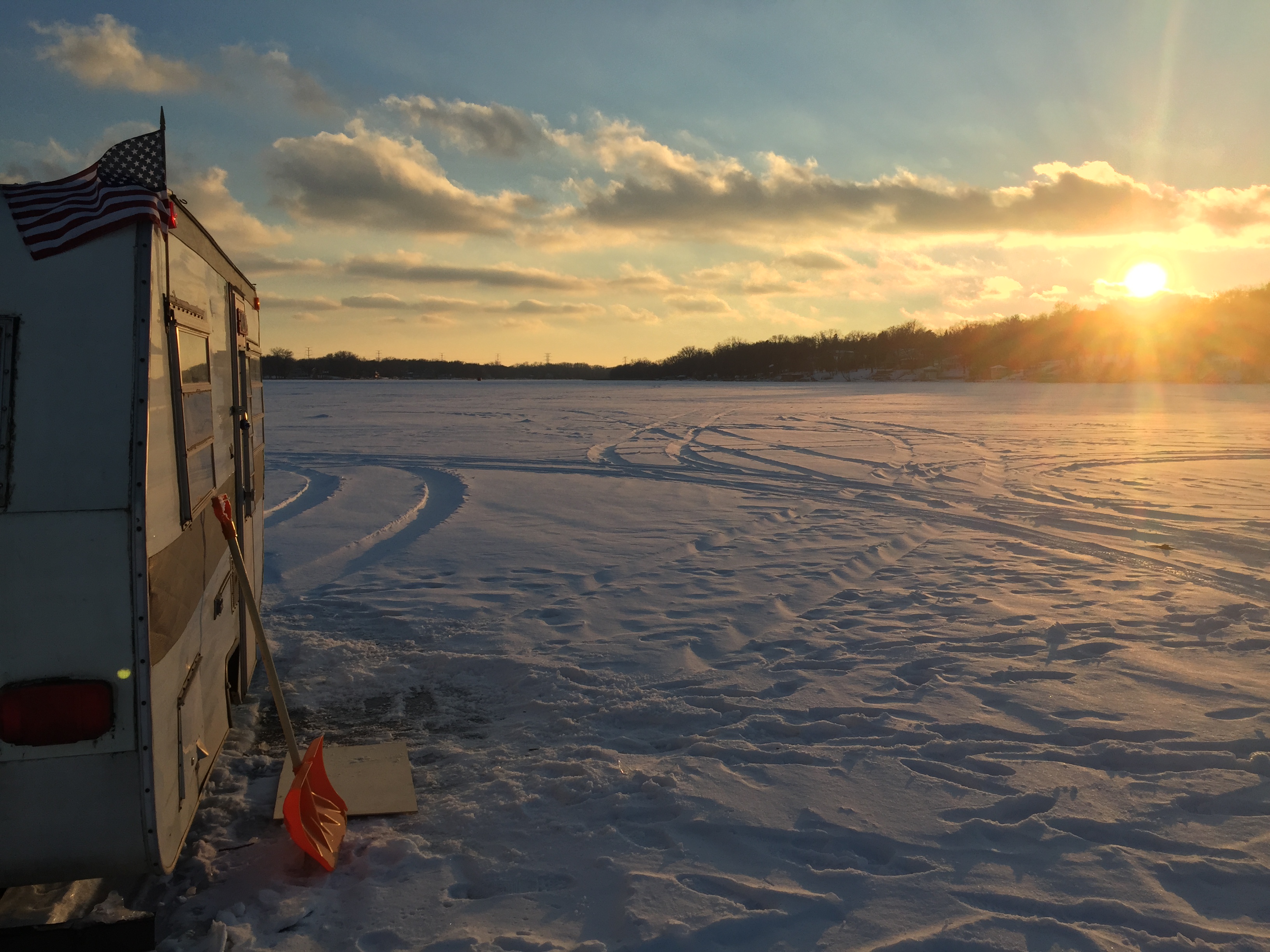

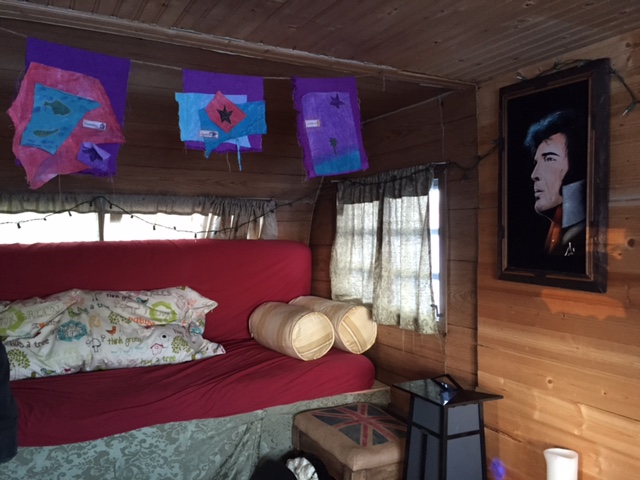
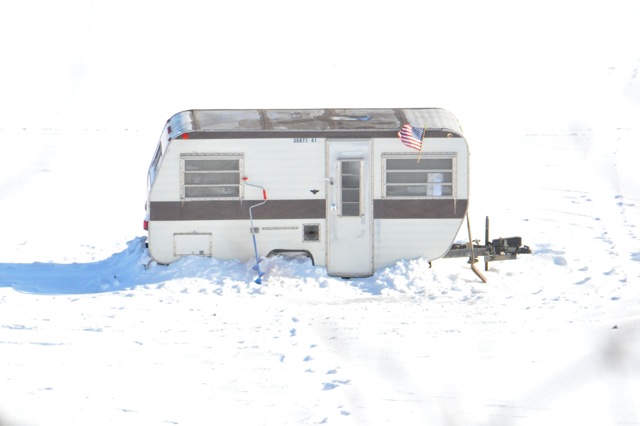

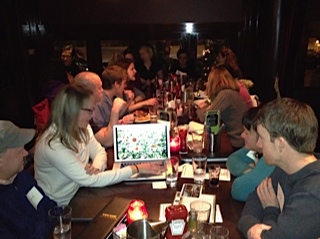
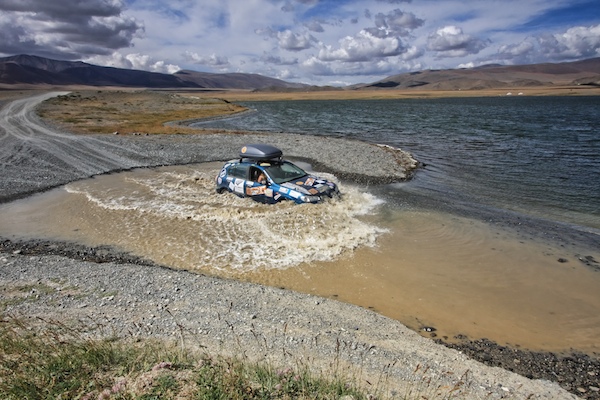


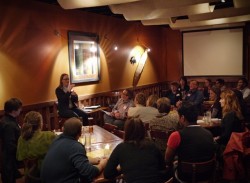 The
The  I couldn’t be happier that the career break movement is finally getting legs.
I couldn’t be happier that the career break movement is finally getting legs.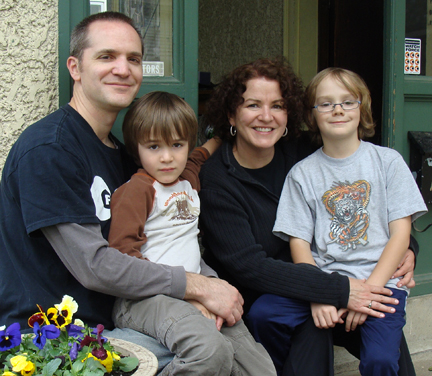 Speaking of career breaks and work/life hacking, here’s a true story about the Woychicks, a Minneapolis family that’s a shining example of the
Speaking of career breaks and work/life hacking, here’s a true story about the Woychicks, a Minneapolis family that’s a shining example of the  Robyn Waters has done it all—and she’s not done yet! That’s why this month she’s off to Spain and Morocco. But not until she’s made a speech at a major New York design show. Taken some “test drives” to explore where she might want to live next. And enjoyed shifting more of her time and energy into the “give-back” mode.
Robyn Waters has done it all—and she’s not done yet! That’s why this month she’s off to Spain and Morocco. But not until she’s made a speech at a major New York design show. Taken some “test drives” to explore where she might want to live next. And enjoyed shifting more of her time and energy into the “give-back” mode. 
















